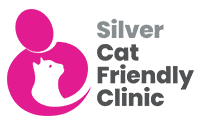Diet
Diet is one of the most important factors affecting a rabbit’s health.
If rabbits are fed incorrectly, many health issues can arise, including obesity, flystrike and various dental problems.
Obesity & flystrike
An overweight rabbit cannot groom itself properly, which in turn can lead to life-threatening conditions such as fly strike. Due to inactivity rabbits can have dirty bottoms and urine scalding which flies are attracted to. They then lay their eggs on the rabbit’s bottom and the maggots produced cause severe pain as they destroy the skin and muscle of their host. The peak season for flystrike is the warmer summer months but it can happen at any time of the year. Rabbit owners should ensure their rabbit stays a good weight, clean out hutches regularly and check the rabbit for signs of eggs or maggots. There is also a product called “Rearguard” which repels flies; all our surgeries stock this product.
Teeth
A rabbit’s teeth are constantly growing at a rate of 2-3mm per week and therefore the correct diet is essential to help wear the teeth down naturally. Dental problems can be life threatening to a rabbit. If they stop eating, the gut becomes static and can make the rabbit very poorly. This requires immediate veterinary treatment. Signs of dental problems include: not eating, salivating, lack of grooming, lethargy, sore mouth and teeth grinding.
The Ideal Diet
The majority of a rabbit’s diet (approximately 90%) should be made up of good quality hay and grass. The remaining part of the diet should be made up of a complete pellet food and fresh vegetables. Muesli style rabbit foods should be avoided as this allows a rabbit to feed selectively and therefore run the risk of not getting all the essential nutrients and fibre needed. A good quality pellet food prevents this as it contains everything needed to keep a rabbit in good health.
Caution for poisonous plants
It’s great for rabbits to get out and graze on grass and they enjoy nibbling on other greenery, but care must be taken with poisonous plants that could have harmful effects on a rabbit. Some common plants that can be harmful to rabbits include autumn crocus, begonia, black nightshade, busy lizzie, buttercup, carnation, chrysanthemum, clematis, cowslip, geranium, hemlock, laburnum, laurel, poison ivy, poppy and yucca.
If you have any questions about your rabbit’s diet, we invite you to book a free appointment with our clinic nurses.
Download the Rabbit Diet & Impact On Their Health content here (PDF)





